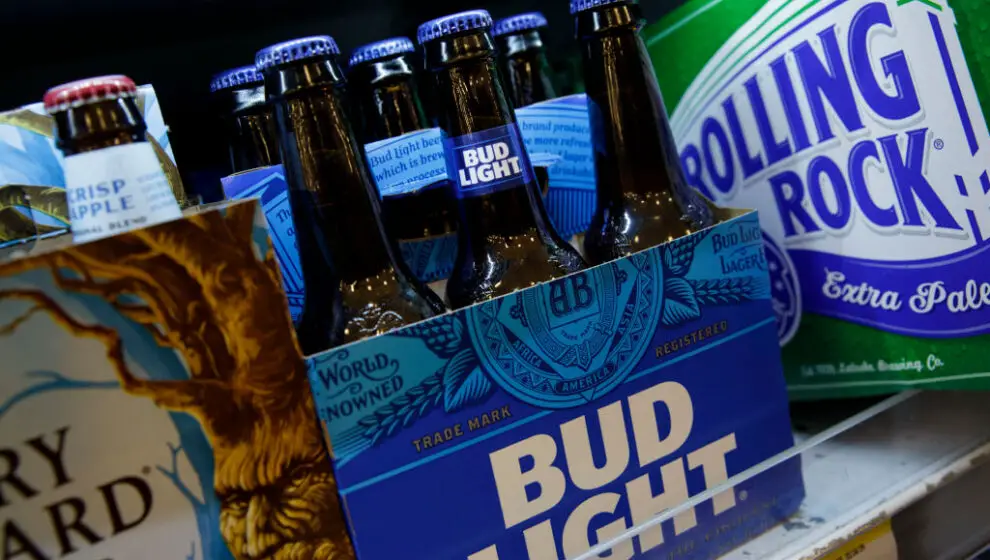After three months, the boycott of Bud Light and Anheuser-Busch continues at pace with no signs of stopping.
Key Details
- A customer loyalty survey from PricewaterhouseCoopers finds that only one in five people are willing to boycott brands over culture war issues, with the majority (25%) being baby boomers or skewing older, Axios reports.
- This has not stopped Bud Light’s continuing decline, with a recent YouGov poll noting that it has dropped from the ninth favorite beer in the U.S. to the 15th.
- Bud Light sales dropped 28.5% the week of June 17 and 27.9% the week of June 23, NielsenIQ reports.
- Modelo Especial has become the top-selling beer in the country for the month of June, with an 8.7% market share compared to Bud Light’s 7% market share, NielsenIQ continues.
Why It’s Important
On April 1, transgender social influencer Dylan Mulvaney released an Instagram post as part of a promotion with Bud Light, showing that their face had been added to cans of beer. Two weeks later, sales of the drink precipitously dropped as conservatives boycotted the brand after a video of a marketing executive said that her goal was to shift the company’s target demographic from “fratty” customers to young progressives.
Three months later, the momentum of the boycott has not slowed down. The brand made numerous mistakes in the aftermath of the initial backlash, attempting to distance itself from its association with Mulvaney without formally doing so—a move that offended both sides of the aisle.
Boycotts do not have a strong history of success at this scale. As Axios notes, prior attempts at boycotts against companies like Goya only created a demand for the product from opposing sides of the political aisle. With the ongoing conservative backlash against the LGBTQ+ movement remaining strong through Pride Month, Bud Light appears to be the victim of a sustained bipartisan disinterest and renewed hostility on the issue of transgenderism.
Bud Light continues to scramble to reinvent the product and revamp its marketing strategy but has found no success yet in doing so, as the boycott is threatening its market share in the long term. Company executives have already admitted that the boycott has created a need for humility and avoiding divisive issues, remembering to understand customers.
“It’s very difficult to anticipate when the next shoe will drop. … So [communications teams] will have to up their game to be able to trace which issues are having traction and which ones aren’t,” says Vanderbilt University chancellor and management scholar Daniel Diermeier, who tells Axios that Bud Light needs to understand how even the smallest acts and decisions can cost billions of dollars.

